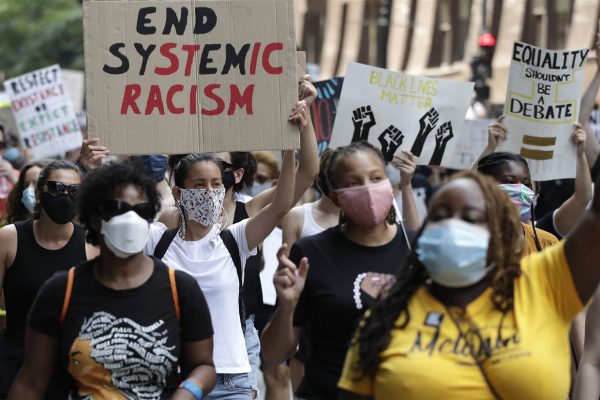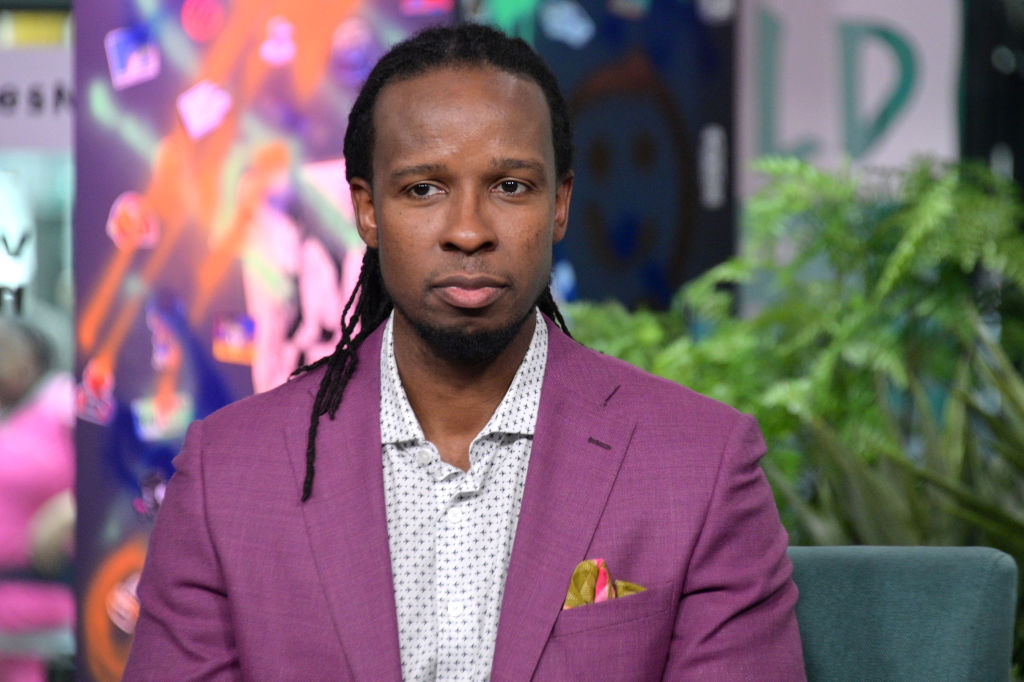The great self-evident truth of the Left.
Revolutionary Discontents

The affirmative action regime took a major, if not fatal, blow.
While it’s unlikely that it will mark the end of race-based college admissions, the Supreme Court’s ban on affirmative action is an important moral victory for defenders of individual liberty. Aside from being morally wrong, the policy failed to achieve its most important goals.
Affirmative action was the creation of intellectual leaders who were attempting to make a black—and later Hispanic—middle class, thereby easing those communities into the American economic and political mainstream. It was assumed that such leadership would prevent a restive underclass easily identifiable by skin color from fomenting a revolution.
But that assumption was decidedly false. From the mid sixties on, black neighborhoods sporadically exploded in riots. During the Cold War, black Marxist terrorist and U.C. Santa Cruz professor Angela Davis doubled as a Soviet propagandist. Domestic terrorist groups like the Weather Underground and anarchist organizers like Saul Alinsky attempted to harness black liberationist energy to overturn the principles and practices of American self-government. Many similar examples followed, not preceded, the civil rights movement and often involved newly-minted racial minority intellectuals.
On the other hand, there are ethnic white substratas of our society, like the Scots-Irish, which, despite being poor and underrepresented, are fiercely patriotic. Moreover, it’s working-class black people who demand better policing of their neighborhoods even if their college-educated betters regard cops as servants of white supremacy.
In the U.S. and elsewhere, the poor and the working class may be capable of rebellions, but it’s the disaffected and somewhat-educated middle classes that drive revolutions. In France, from the nineteenth century on, the Sorbonne was the locus of revolutionary activity. In Russia, Vladimir Lenin was expelled from Kazan Imperial University for revolutionary activity only to become the terrorist mastermind of the October 1917 Bolshevik Revolution.
It didn’t escape Lenin’s observation that most of his co-conspirators came from a middle-class background. Certainly, everyone at the time was aware of this. For instance, The Unexpected, an 1884-86 painting by the Russian artist Ilya Repin, shows an amnestied political prisoner returning to his comfortable home to the awe and disbelief of his family and their domestic help.
Because Marx predicted that socialist revolution would be led by the working class, his followers had to plug that hole in their sage’s theory. Lenin declared the intelligentsia to be the vanguard of the proletariat; the role of the former is to lead and raise the revolutionary consciousness of the latter.
The American vanguard has been decades in the making, thanks in no small degree to an affirmative action regime that was supposed to prevent revolutionary sentiments from exploding into open revolt. Contemporary American education is geared toward creating a large, disaffected, and marginally educated youth demographic. Universities recruit students of second-rate academic potential and then drench them in grievance studies. This is increasingly true of young people of all ethnic and social-economic backgrounds. They arrive on campuses after a decade and a half of schooling in woke dogma, only to have their worldview vigorously reinforced by activist faculty.
Doubtlessly, there is much good in a rigorous liberal arts education—for one, it elevates society and makes better citizens. But American universities no longer offer this kind of training. The humanities today offer little practical value; it’s not clear how a thesis on performative gender is useful in the marketplace. Yet, students enter universities dreaming big but leave with mountains of debt and maybe a diploma. Many will never start a family, and even if they do, their egos will never be satisfied.
Contemporary university education has been an unmitigated failure in creating a worthy intellectual elite for any ethnic group—blacks especially. San Francisco’s recent reparations proposal is a perfect example of that failure. I read the publicly available draft proposal and found it far worse than expected. The authors couldn’t figure out how to draw a timeline and didn’t know basic historical facts, such as the dates of American involvement in World War II. The document was peppered with phrases like, “the global course of history exploded those numbers,” as mindless as they are anodyne. After decades of affirmative action in higher education, the San Francisco Committee on Reparations, working out of one of the best credentialed, wealthiest municipalities in the nation, couldn’t find leaders capable of assembling a strong team—or a decent copy editor.
Nevertheless, the Committee determined that qualified black residents of San Francisco are owed $5 million each, plus cancellation of all debts, a yearly stipend, and multiple other perks. How did they arrive at this number? Under the “methodology” section of their proposal, the Committee explained that they met monthly to discuss their concerns. It’s worth noting that San Francisco’s taxpayers compensated the 15-member reparations committee to the tune of $175,000 for the trouble of arranging their grievances.
My guess is that the draftees estimated that $5 million plus perks would enable black San Franciscans and their descendants to never worry about money.
An educated and responsible black leadership would explain that reparations are paid by a losing side in a war to people who personally experienced atrocities. By “atrocities” we don’t mean redlining or incarceration on drug charges.
Moreover, when Holocaust survivors like my parents accepted a modest sum from Germany, it provided refugees with immediate assistance. It was not a guarantee of a comfortable life for generations, but a gesture of reconciliation.
That’s because history teaches that unreasonable reparations can boomerang on the beneficiaries. Following World War I, the victors imposed punitive payments on Germany, putting the country’s economy into a tailspin. Reparations were at the root of German resentment and a contributing cause to the rise of Nazism. To avoid a replay following World War II, the U.S. offered help rebuilding Axis countries.
Affirmative action alone can’t explain the crisis of black leadership, nor does it mean that a responsible intellectual elite doesn’t exist. Unfortunately, true giants like Thomas Sowell are sidelined by semi-educated racialists like the Pulitzer Prize winner and MacArthur Fellow Nikole Hannah-Jones of the New York Times, whose life’s work is to promote the idea that our country was established on slavery. The heavily-promoted black mainstream is best suited for ill-advised shakedown schemes.
That’s not to say that America doesn’t need to do more to grow black and Latino intellectuals. But this project requires development—good teachers working overtime in difficult neighborhoods—and it won’t happen overnight.
The American Mind presents a range of perspectives. Views are writers’ own and do not necessarily represent those of The Claremont Institute.
The American Mind is a publication of the Claremont Institute, a non-profit 501(c)(3) organization, dedicated to restoring the principles of the American Founding to their rightful, preeminent authority in our national life. Interested in supporting our work? Gifts to the Claremont Institute are tax-deductible.
A prominent "Never Trumper" argues that the sins of the fathers must be visited upon the sons.
Are humans really all the same?



